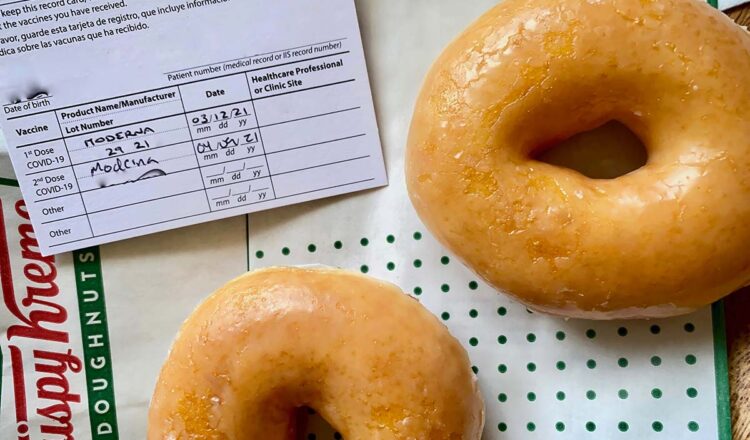To meet the Biden Administration’s goal of having at last one COVID shot in the arms of 70 percent of Americans by July 4, vaccine hesitancy must be overcome, notes the Association of American Physicians and Surgeons (AAPS).
Nearly 40 percent or more of members of certain groups express reluctance to get a COVID jab, including police officers, U.S. Marines, healthcare workers, and detained or incarcerated persons. An online survey conducted by the scientists of Johns Hopkins Bloomberg School of Public Health showed that about 41 percent of U.S. residents were unwilling to receive the shots.
Incentives are being offered, from free donuts to grocery discounts to entry in a $1 million lottery.
These COVID products are still experimental, and AAPS raises concerns about the ethics of paying people to participate in experiments. While it is common to reimburse subjects for expenses and inconvenience, there is debate about how much of an inducement is too much, causing participants to take risks they might otherwise decline. This is especially important when participants are poor.
AAPS notes that the Nuremberg Code of 1947 concerning permissible human experiments states that: “The voluntary consent of the human subject is absolutely essential. This means that the person involved should have legal capacity to give consent; should be so situated as to be able to exercise free power of choice, without the intervention of any element of force, fraud, deceit, duress, overreaching, or other ulterior form of constraint or coercion; and should have sufficient knowledge and comprehension of … the effects upon his health or person which may possibly come from his participation in the experiment.”
Also, “proper preparations should be made and adequate facilities provided to protect the experimental subject against even remote possibilities of injury, disability or death.”
“To a person whose economic prospects have been destroyed in this economy, having to forgo the chance of a $1 million payoff in order to exercise choice is coercive,” states AAPS executive director Jane Orient, M.D. “Moreover, risks are not being fully disclosed, and no provision is made to compensate the person for potential permanent disability.”
In addition to ethical constraints, federal law requires that receipt of products available under an Emergency Use Authorization must be fully voluntary, AAPS points out. Trials of these products were scheduled to collect data until the end of 2022.
The Association of American Physicians and Surgeons has represented physicians in all specialties since 1943. Its motto is omnia pro aegroto, everything for the patient.




